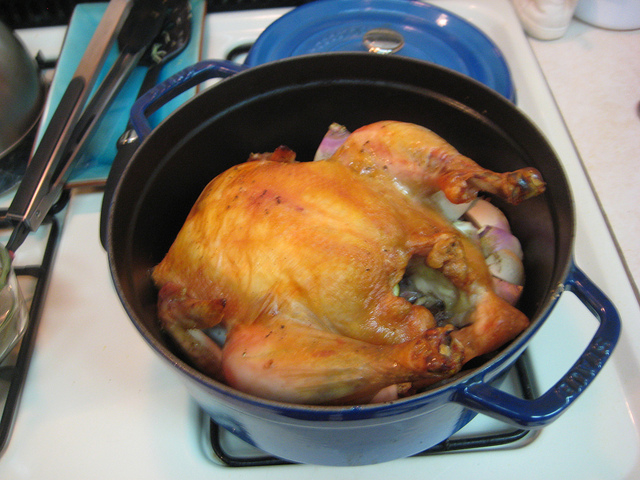
Food poisoning isn't just a solid excuse to call in sick to the office. Food-borne illness not only kills, but takes a big toll on the economy. The University of Florida just released it's report that lists the 10 pathogen-food combinations that cause the most food poisoning cases in the U.S. What's most startling, is that these food-borne illnesses cost the economy a whopping $18 billion in lost wages, medical care and more.
Poultry contaminated with Campylobacter topped the list and cost the economy $1.3 billion. Rounding out the top-five were Toxoplasma in pork ($1.2 billion), Listeria in deli meats ($700 million), Salmonella in poultry ($700 million), and Listeria in dairy products ($700 million).
But a few simple practices recommended by the Mayo Clinic could eliminate a significant amount of these diseases. Here are 6 ways you can prevent food-borne illness in your kitchen, and save those sick days for something more useful, like a baseball game.
6 Easy Ways to Prevent Food Poisoning
- Wash hands and utensils with hot soapy water after handling and preparing food.
- Prevent cross-contamination by keeping raw meats and shellfish separate from produce and other ready-to-eat foods in the market, at home, and while cooking.
- Cook foods to a safe temperature. Invest in a good meat thermometer and make sure you cook food all the way. Most pathogens are killed off at temperatures between 145 F (62.8 C) and 165 F (73.9 C).
- Refrigerate or freeze raw foods within 2 hours of purchasing. If it's hotter than 90 degrees, you've only got an hour. And if you don't expect to eat raw meats within two days, freeze it.
- Defrost carefully. Don't thaw foods at room temperature. Either thaw meats in the refrigerator, on "Defrost" in the microwave or under cold water.
- If you have to think about whether it's safe to eat, don't. No matter how tempting, "come here and smell this," isn't a safe way to prevent illness. If you can't remember when you bought it, that's not a good sign either. Don't take any chances.
Photo: By elkit










